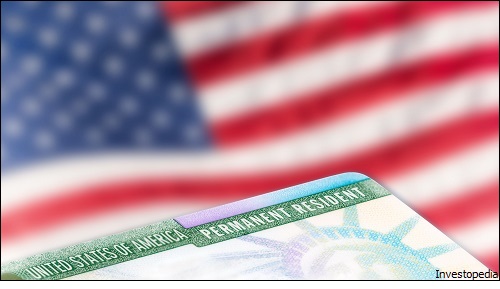
|
|

|
|
| April 19, 2024 |
|
Trump's 'wealth test' begins for US immigrants 
WASHINGTON - A controversial new policy that denies legal residency to migrants who have received government assistance has come into effect in the US.
The policy, termed the "public charge rule" by proponents and a "wealth test" by critics, was cleared by the Supreme Court last week. It means that many legal immigrants who previously had qualified for residency no longer would, studies show. Republicans and President Donald Trump argue the rule protects US taxpayers. What's changed? The policy, which was first announced in August but delayed until now by federal courts, adds restrictions to the "public charge" rule that immigration agents consult when considering individual cases for green cards, which grant permanent US residency. The vaguely-defined public charge rule has been in place for over 100 years, and says that migrants who are likely to require extensive government welfare should not be admitted. But under the new rules, some recipients of "non-cash" benefits including particular types of healthcare assistance, food aid and housing subsidies can also be turned down, on the basis that they are "a public charge". The update also raises the salary required for a family of four from $32,000 per year to $60,000. The policy applies to anyone who received government welfare for 12 months at any point in the past 36 months. The rule does not apply to refugees, asylum-seekers, or victims of crimes who are aiding US investigators. It also exempts certain benefits from consideration by immigration agents, including emergency medical assistance, school lunch subsidies, disaster relief and government healthcare (Medicaid) for those under 21 years old. Nonetheless, almost two-thirds of migrants who qualified for legal US residency between 2012 to 2016, would not have done if these rules had been in place then, according to a study by the Washington-based Migration Policy Institute. The new policy will not apply to anyone who had applied for residency prior to 24 February. What's the latest on the travel ban? Also on Monday, six more countries were added to the White House travel ban - bringing the number of countries affected to 13. Nigeria, Myanmar, Eritrea, Kyrgyzstan, Sudan and Tanzania are joining Iran, Syria, Yemen, Libya, Somalia, North Korea and Venezuela. The ban, which has been argued over in courts for years, prohibits anyone from those countries from seeking immigrant or non-immigrant visas, though some exemptions are made for people who have "significant contacts" in the US. (Source: BBC News) Story Date: February 25, 2020
|